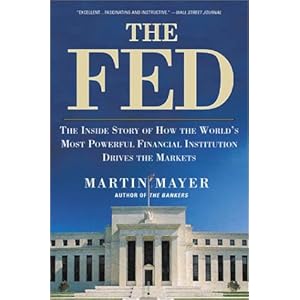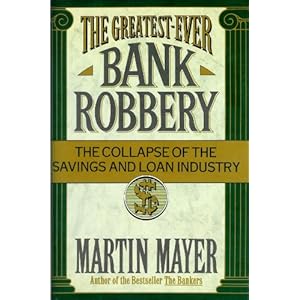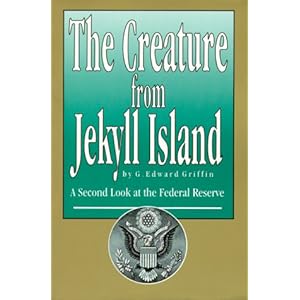Here's the link to past Fed Reserve speeches.
Don't fight the Fed, as they say. The speeches tell you what the Fed is going to do and their thought process. Right or wrong, they make the market, so listen.
Showing posts with label banks. Show all posts
Showing posts with label banks. Show all posts
Tuesday, December 6, 2016
Friday, July 15, 2016
Researching Banks' Balance Sheets
American Financial Directory is a good print reference source that provides information on individual banks' outstanding loans, deposits, and other information.
It doesn't seem to have detailed information on the big boys - just smaller banks - so Mergent is my preferred database for getting that kind of information. You know - Wells Fargo, Bank of America, Capital One, etc...Check their financials.
This is a cool website from the government that gives you up-to-minute financial information for your bank.
Tuesday, October 13, 2015
Friday, March 21, 2014
Matt Taibbi: The Price of Everything is Rigged
Matt Taibbi recently wrote a great piece called Everything is Rigged.
We now know that interest rates set by LIBOR were in fact, rigged. That affects your mortgage, credit card debt and more. And there's suspicion that oil prices, gold and more might be involved.
We now know that interest rates set by LIBOR were in fact, rigged. That affects your mortgage, credit card debt and more. And there's suspicion that oil prices, gold and more might be involved.
Friday, November 22, 2013
Bailout: An Inside Account Of How Washington Abandoned Main Street While Rescuing Wall Street
This is a chilling tale of how our system favors powerful interests.
Bailout: An Inside Account Of How Washington Abandoned Main Street While Rescuing Wall Street
Here's a good review from the Economist:
excerpt:
Bailout: An Inside Account Of How Washington Abandoned Main Street While Rescuing Wall Street
Here's a good review from the Economist:
excerpt:
"Mr Barofsky was asked to serve as the Special
Inspector General for the Troubled Asset Relief Program (TARP) by the
outgoing Bush administration. He was an inspired choice, a tough New
York prosecutor who had led fraud cases against futures brokers that hid
losses and predatory mortgage lenders. Earlier in his career, Mr
Barofsky charged dozens of Colombian Marxist guerrillas, narrowly
avoiding assassination in Bogota. But he was not interested in leaving a
job he loved to fight turf-obsessed bureaucrats. Mr Barofsky accepted
the assignment only after his boss made an earthy appeal to his sense of
patriotism: "Who else is going to protect the public from what could be
a $700 billion clusterfuck of fraud?"
Indeed, Mr Barofsky reports that no one in the Treasury Department and almost nobody at the Federal Reserve seemed concerned that some might try to exploit the government's largesse. Whenever Mr Barofsky tried to ensure that banks were using TARP funds to make loans--the stated purpose of the programme--he was told that it would be impossible because "all money is green". Yet the bankers themselves had no problem telling journalists how they planned to use the cheap capital to buy competitors or hoard cash for a rainy day. Mr Barofsky's team was able to add safeguards to some of the Treasury's worst ideas only thanks to pressure from Congress and the media."
Indeed, Mr Barofsky reports that no one in the Treasury Department and almost nobody at the Federal Reserve seemed concerned that some might try to exploit the government's largesse. Whenever Mr Barofsky tried to ensure that banks were using TARP funds to make loans--the stated purpose of the programme--he was told that it would be impossible because "all money is green". Yet the bankers themselves had no problem telling journalists how they planned to use the cheap capital to buy competitors or hoard cash for a rainy day. Mr Barofsky's team was able to add safeguards to some of the Treasury's worst ideas only thanks to pressure from Congress and the media."
Friday, August 30, 2013
Looting: The Economic Underworld of Bankruptcy for Fun and Profit
"Looting: The Economic Underworld of Bankruptcy for Fun and Profit" is a classic article that critiques traditional behavioral models of economics.
If you're a bank or savings-and-loan, get your deposits insured, gamble the deposits in an unsustainable boom and bust cycle, take the profits, declare bankruptcy, wipe out the deposits, and make the Federal government pay for the lost deposits.
Inspired by the late eighties savings-and-loan debacle and real estate boom and bust cycle in Texas, and perhaps a sign of things to come.
If you're a bank or savings-and-loan, get your deposits insured, gamble the deposits in an unsustainable boom and bust cycle, take the profits, declare bankruptcy, wipe out the deposits, and make the Federal government pay for the lost deposits.
Inspired by the late eighties savings-and-loan debacle and real estate boom and bust cycle in Texas, and perhaps a sign of things to come.
Labels:
accounting,
banks,
economics,
finance,
real_estate
Wednesday, February 20, 2013
Book Review: Martin Mayer's The Fed

Martin Mayer's The Fed is probably the best book I've read so far about the Fed.
Not a history of the Fed, but rather an examination of the transformation of finance that begins in the 80s and really picks up steam in the 90s (where the book focuses).
Mayer picks up on the fact that central banks' traditional levers of control (money supply, interest rates) have been superseded by the new financial landscape beyond its regulatory powers.
Derivatives, the extension of credit and more have created different circumstances that the Fed cannot control. Mayer gently chides those who believe all risks are contained and knowledge is perfected.
A few early crises in the 90s are shots across the bow for the deluge that is here now.
Mayer was writing in 2001. VERY prescient.
Wednesday, February 13, 2013
Book Review: The Greatest Ever Bank Robbery
Note: Not to be confused with William Black's book of a similar name.
The Greatest Ever Bank Robbery.

The story of the late-80s savings and loan fiasco foreshadowed much of the economic crisis of our time.
Financial journalist Martin Mayer highlights one particular problem: FDIC insured deposits. This leads savings and loans to overextend themselves with loans to go-go builders and oftentimes in bizarre things like currency speculation. But the unlimited government FDIC backstops means all will be made well.
See where this is going?
This book has very useful details about specific kinds of accounting fraud, especially in the land development business.
In another troubling sign of things to come, Mayer discusses the conspiracy of corruption that included regulators, land appraisal, bank officials, and others that should have been ethical but instead knowingly looked the other way or invented metrics to mask the problem.
The Greatest Ever Bank Robbery.

The story of the late-80s savings and loan fiasco foreshadowed much of the economic crisis of our time.
Financial journalist Martin Mayer highlights one particular problem: FDIC insured deposits. This leads savings and loans to overextend themselves with loans to go-go builders and oftentimes in bizarre things like currency speculation. But the unlimited government FDIC backstops means all will be made well.
See where this is going?
This book has very useful details about specific kinds of accounting fraud, especially in the land development business.
In another troubling sign of things to come, Mayer discusses the conspiracy of corruption that included regulators, land appraisal, bank officials, and others that should have been ethical but instead knowingly looked the other way or invented metrics to mask the problem.
Thursday, January 3, 2013
What's Inside America's Banks?
Great article from The Atlantic summarizing the sad situation that US banks are able to conceal the true state of their financial health through legal loopholes.
Article starts with a broad summary then gets good and wonky (we like that!)
Good quote: “Investors can’t truly understand the nature and quality of the assets and liabilities. They can’t readily assess the reliability of the capital to offset real losses. They can’t assess the underlying sources of the firms’ profits. The disclosure obfuscates more than it informs, and the government is not just permitting it but seems to be encouraging it.”
Check it out.
Article starts with a broad summary then gets good and wonky (we like that!)
Good quote: “Investors can’t truly understand the nature and quality of the assets and liabilities. They can’t readily assess the reliability of the capital to offset real losses. They can’t assess the underlying sources of the firms’ profits. The disclosure obfuscates more than it informs, and the government is not just permitting it but seems to be encouraging it.”
Check it out.
Wednesday, January 2, 2013
Book Review: The Creature From Jekyll Island

Link to Our Copy of The Creature from Jekyll Island: A Second Look at the Federal Reserve
Just what is the Federal Reserve? It's actually a privately controlled system of private banks that decides the nation's money supply and interest rates, among other functions. As America continues to monetize its debt and flirt with a currency crisis, profound questions about who is doing this and why should be asked.
The author introduces the reader to the banking cabal that conjures our privately controlled money supply out of thin air (so far, so good). He then tries to push a paranoid, conspiratorial view of history in which mainstreet USA is being attacked by well-organized enemies. This elite is a true witches' brew: it's capitalist, feudalist, communist, socialist, atheist, and based in Europe and New York City.
Actual wonky details of the operations of the financial system, an intelligent discussion of why people might want a central bank (even if you disagree), and actual proof for multiple assertions are lacking in the book.
I can't really recommend this book. It's a poorly researched, simple-minded, nativist vision of the world for people that don't want real details - just a confirmation of their prejudices and beliefs.
I hope this is not your only introduction to the Federal Reserve.
However, I would recommend this book on the history of money, as well as my review on the great Austrian economist Ludwig von Mises if you want to understand a little more about money.
Tuesday, August 7, 2012
Book Review: Other People's Money
Louis Brandeis's Other People's Money and How the Bankers Use It is a classic critique of the power Wall Street and financiers can wield.
The populist lawyer and later Supreme Court justice often critiqued and identified concentrated power as harmful to democracy.
In Other People's Money, Brandeis lays out his argument against the banks and Wall Street.
Brandeis claims that a small number of bankers use the people's own money deposits as the basis to control industry and finance. This power is then used to create non-competitive oligarchies that stifle creativity, competition and thus lower prices. In addition, many businesses run by financiers are not run as operational businesses producing goods and services, but more as cash cows to be mined, stripped and then discarded.
As evidence, Brandeis examines the connections of shell and dummy corporations, together with massive amounts of capital stock, that allow a small number of people to control so much wealth and direct activity.
His solution is creating financial institutions and marketplaces controlled by the people - credit unions and cooperatives.
While presenting one perspective to be sure, Other People's Money will be a much needed re-introduction to America's sometimes sordid financial past.
The populist lawyer and later Supreme Court justice often critiqued and identified concentrated power as harmful to democracy.
In Other People's Money, Brandeis lays out his argument against the banks and Wall Street.
Brandeis claims that a small number of bankers use the people's own money deposits as the basis to control industry and finance. This power is then used to create non-competitive oligarchies that stifle creativity, competition and thus lower prices. In addition, many businesses run by financiers are not run as operational businesses producing goods and services, but more as cash cows to be mined, stripped and then discarded.
As evidence, Brandeis examines the connections of shell and dummy corporations, together with massive amounts of capital stock, that allow a small number of people to control so much wealth and direct activity.
His solution is creating financial institutions and marketplaces controlled by the people - credit unions and cooperatives.
While presenting one perspective to be sure, Other People's Money will be a much needed re-introduction to America's sometimes sordid financial past.
Friday, June 8, 2012
Researching Banks' Balance Sheets
Here's how to research a bank's, credit union's, or other financial institution's deposits, loans, credit card loans, home loans and more. You'll see several years' worth of data and get to compare it to other factors like equity, book value of loans and more.
The best database for this is Mergent - at least for large public financial corporations like Bank of America or Capital One. You can see detailed breakdowns of their financial assets.
American Financial Directory is also good. Less detail, and it's in print, but it does have some numbers on loans, liabilities and assets. Particularly good for smaller banks, privately-held banks, and credit unions.
Now, this one is pretty amazing indeed: Federal website where you can check your local bank's deposits, loans, mortgage, etc... figures
The best database for this is Mergent - at least for large public financial corporations like Bank of America or Capital One. You can see detailed breakdowns of their financial assets.
American Financial Directory is also good. Less detail, and it's in print, but it does have some numbers on loans, liabilities and assets. Particularly good for smaller banks, privately-held banks, and credit unions.
Now, this one is pretty amazing indeed: Federal website where you can check your local bank's deposits, loans, mortgage, etc... figures
Tuesday, October 12, 2010
Where's My Mortgage?
Click this link to find out who owns your mortgage - and if they can produce the note. It's always helpful to live in a society that requires documents and proof rather than just having strangers show up and tell you to get out of your house.
Please see the book review about Hernando de Soto's: The Mystery of Capital: Why Capitalism Triumphs in the West and Fails Everywhere Else about why the rule of law and equal protection before the law is critical to capitalism's success.
Please see the book review about Hernando de Soto's: The Mystery of Capital: Why Capitalism Triumphs in the West and Fails Everywhere Else about why the rule of law and equal protection before the law is critical to capitalism's success.
Friday, November 13, 2009
LIBOR Rate
Ever hear of LIBOR (the London Inter Bank Offer Rate)? It's the rate for banks borrowing unsecured funds from each other in the London money market. It has international significance, even for banks not using the London market.
Here's my favorite way to get LIBOR - on Bloomberg.
Oh right, we also have it in ECONOMAGIC. This link contains different currencies and time horizons.
Here's my favorite way to get LIBOR - on Bloomberg.
Oh right, we also have it in ECONOMAGIC. This link contains different currencies and time horizons.
Subscribe to:
Posts (Atom)